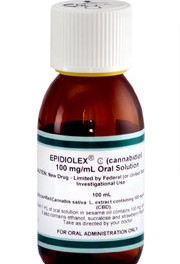“It is very aggressive, so it is very important to find new therapies for this cancer,” said Dr Riccardo Ferro, first author of the research from Queen Mary University of London.
Writing in the journal Oncogene, Ferro and colleagues from the UK, Italy and Australia describe how they carried out experiments both on cells in dishes and on mice that had been genetically modified to develop pancreatic cancer, to show that a gene known as GPR55 is involved in the growth and multiplication of pancreatic cancer cells. This gene gives rise to proteins that sit in cell membranes and detect various substances, including certain cannabis-derived chemicals. The team found about 26% of human pancreatic cancer samples showed raised levels of such receptors, suggesting an accumulation in cancer tissues – at least for some patients.
Among the subsequent experiments, the team took mice that had been genetically modified to develop pancreatic cancer and split them into four groups.
Ten mice were given CBD, eight were given the chemotherapy drug gemcitabine, seven were given both drugs, and nine were given a placebo.
Mice in the placebo group lasted for just under 19 days on average, while those in the CBD group lived for just over 25 days and those in the gemcitabine group for almost 28 days.
When the two drugs were combined, the effect was even more dramatic, extending the average survival to almost 53 days after starting treatment.
The team say the CBD blocks the receptors produced by the GPR55 gene, preventing them from interacting with other substances that promote the growth and multiplication of the cancer cells. What’s more, they found CBD hinders the development of resistance to gemcitabine.
Gemcitabine is the chemotherapy drug most often used in the treatment of prostate cancer.





